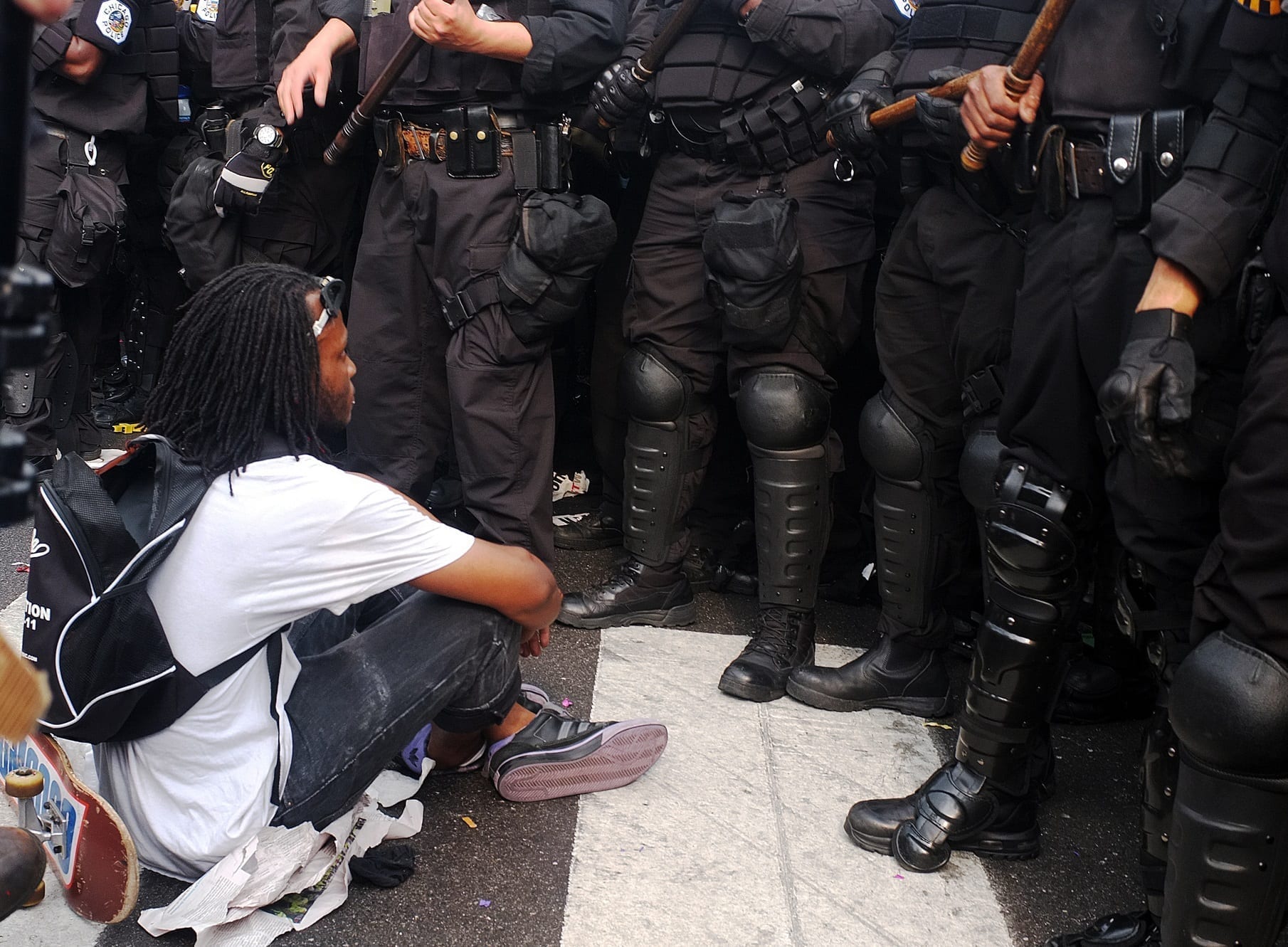Falling trust in traditional institutions, such as the police, government, and media outlets, means people must rely on themselves – and each other. This can mean dealing with our own problems, but this double edged sword can kill us – or protect us. Will falling trust lead us to squabble with each other in our little tribal fiefdoms, gathering around charismatic strongmen? Few worse outcomes spring to mind. Rather, let us work around the institutions that no longer work for us. Let us take back the power we have given to the system in so many ways. We still need each other. This time of great change offers us an opportunity. Let’s remake the world into one worth living in again.
Trust in our institutions is dying all around us. The 2007-2008 financial meltdown eroded our trust in banks. Cyber security breaches at major companies like Yahoo, Target, and Home Depot cause falling trust in business. Volkswagen’s emissions cheat, Takata’s airbags, and unsafe pharmaceuticals drive down our belief in brands. Water contamination in Flint and beyond means that we can’t trust local leaders to act in our best interests. The populist movements behind the Trump and Sanders candidacies revealed a lack of confidence in government. A fake news epidemic calls into question even legitimate reporting. What lies behind this sea change in the way we relate to our traditional pillars of authority? What lies after, when we finally give up on the power of our elites and institutions to look after our interests and keep civilization on track?
It’s pretty clear that the economy is changing in ways we cannot fully imagine, but which bode poorly for our future. The incoming administration campaigned successfully in the rust belt on a promise of jobs. Falling trust in government and nationalist sentiments rage in Europe and the United States. Marginalized workers and the unemployed hate on immigrants instead of the employers that replaced them or the automation that employers replaced them with. The captains of industry and their wealthy investors preach the gospel of free trade, but taking advantage of wage arbitrage isn’t trade in the classic sense where everyone benefits. What will we do to support ourselves in the future? Nobody knows.
When people fear for their future, they become more tribally oriented. People feel more generous during good times, but when jobs and prosperity go away, so does social cohesion. We start seeing each other as the enemy. We have to remind others that our lives matter, and they don’t always believe us. Paradoxes occur as perspectives shift in popular opinion. In Chicago, for example, police brutality and overreach in Chicago’s south and west sides meant residents no longer felt safe interacting with the police. Falling trust in the police meant increasing crime, as people began dealing with their problems directly. Meanwhile, people who have always felt safe and protected by the men in blue share posts on social media claiming that the police ought to use a heavier hand.
However, it hasn’t always been this way. When people weren’t so thick upon this big blue marble, we lived in groups where people knew each other. They depended upon each other every day for their very survival. Falling trust in your kinship group had dire consequences, so people worked hard to support each other. Only later did the spiral of rising population, a shrinking landbase, settlements, agriculture, storable surplus grain, and civic religion bring hierarchy. The more distance between the lowest and highest people on the social totem pole, the more strangers we had to live with, the more we became reliant on institutions. We left the land, moved to the cities in nuclear families, following the jobs away from our extended families. Once, we relied on each other. Then we came to rely on Citibank. Safeway. Toyota. The nice policeman on the corner. Men in suits. Uniforms.
When institutions fail us, we must rely on ourselves. This can mean dealing with our own problems, but this double edged sword can kill us – or protect us. Will falling trust lead us to squabble with each other in our little tribal fiefdoms, gathering around charismatic strongmen? Few worse outcomes spring to mind. Rather, let us work around the institutions that no longer work for us. Let us take back the power we have given to the system in so many ways. We still need each other. This time of great change offers us an opportunity. Let’s remake the world into one worth living in again.
We’ve stopped trusting institutions and started trusting strangers, a TED talk by Rachel Botsman.


Join the conversation!